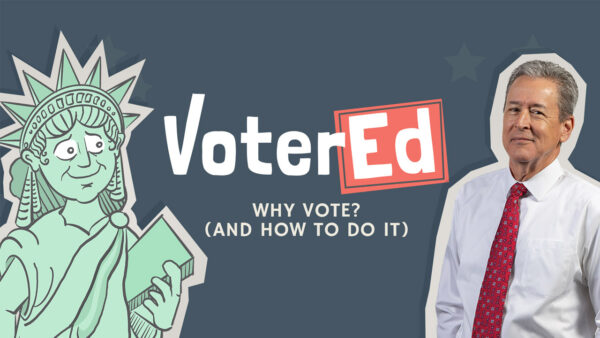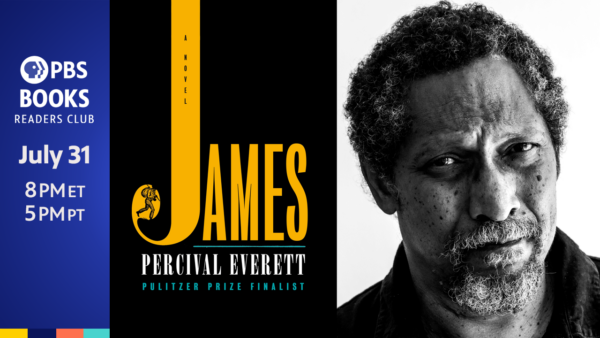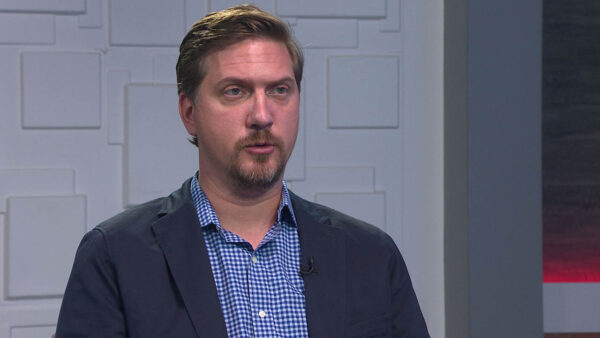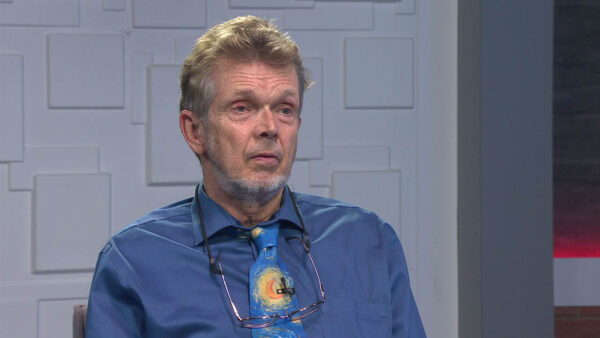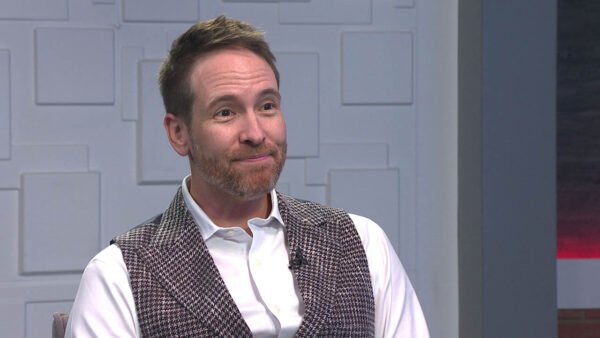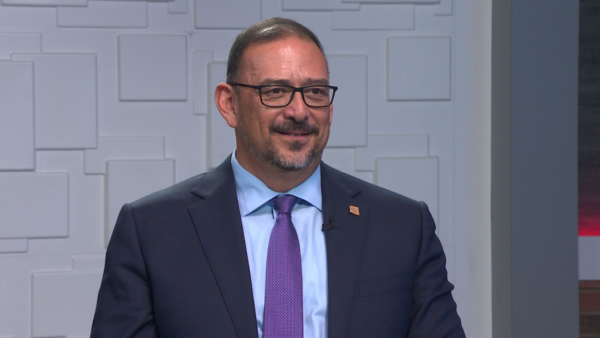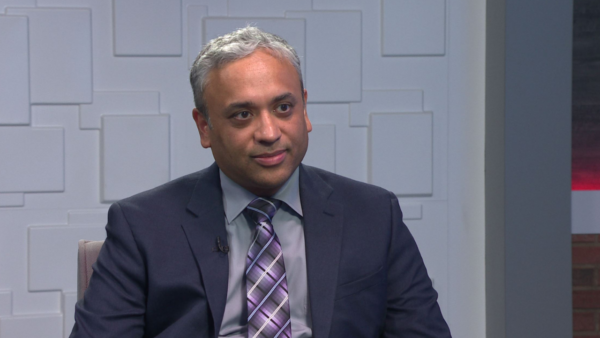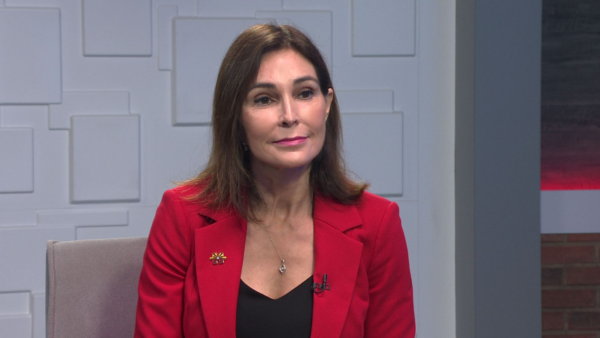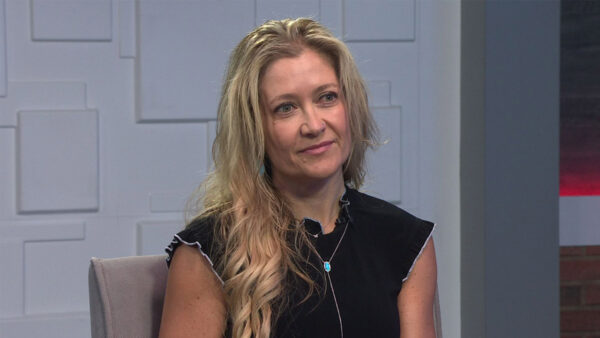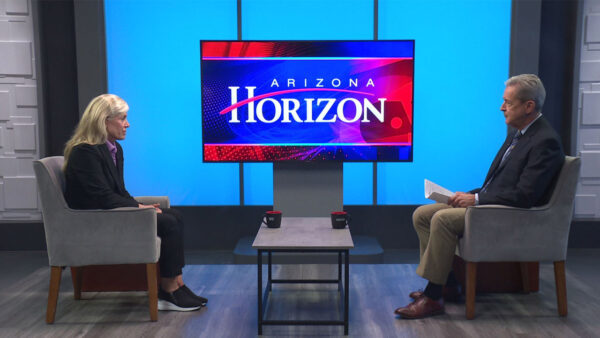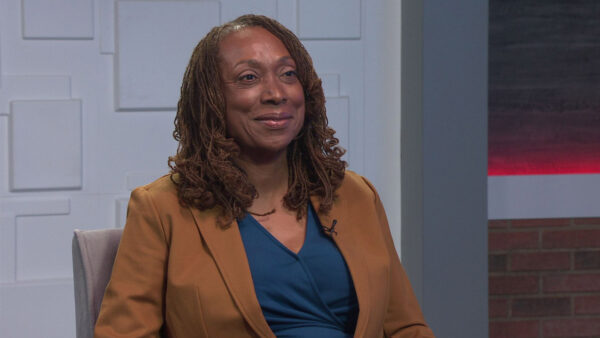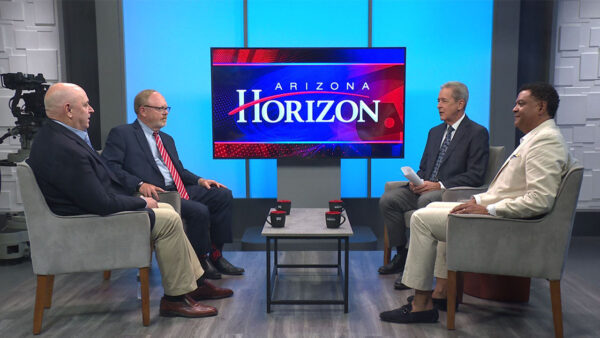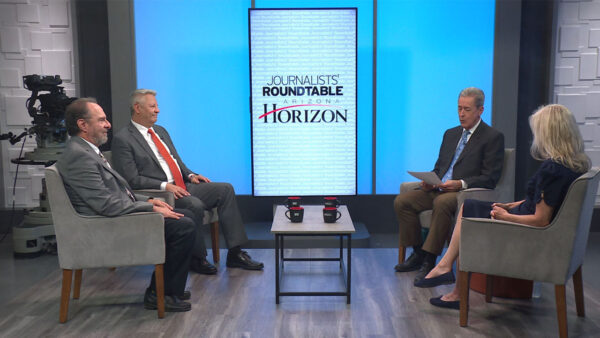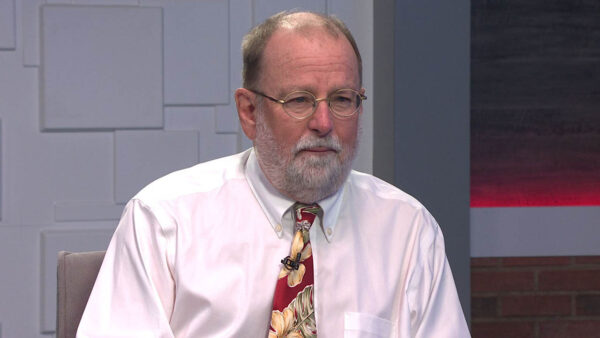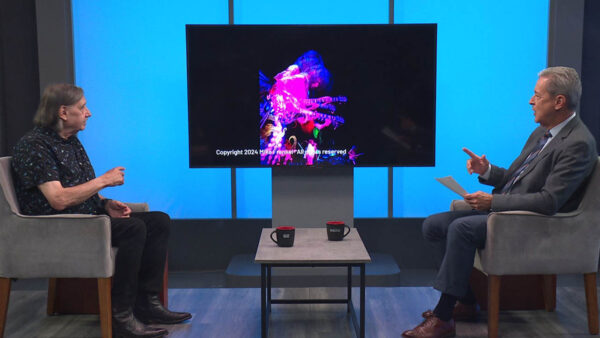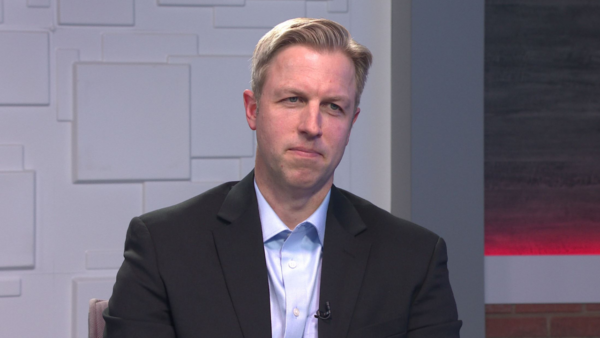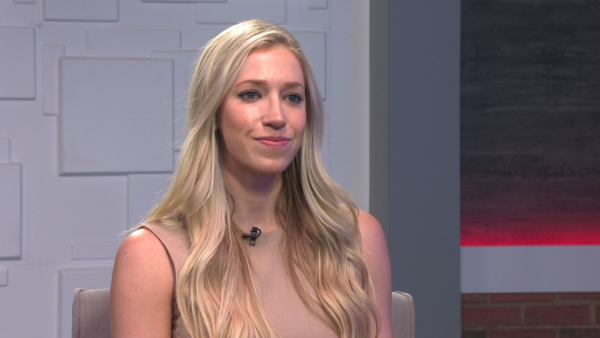Arizona’s law that allows you to defend yourself against a deadly threat was expanded a few years ago to let you “stand your ground” when outside your home instead of having to retreat. Recently, Arizona Senator John McCain called for state lawmakers to revise the law in light of the Trayvon Martin shooting. State Senator Steve Gallardo and State Representative John Kavanagh will debate Arizona’s Stand Your Ground law.
Richard Ruelas: Good evening. The new jobs will come with stock grants and tuition reimbursement. Amazon promises to pay 30% more than traditional retail jobs. Arizona law allows you to defend yourself against a deadly threat was expanded to allow you to stand your ground when outside your home instead of having to retreat. Recently Arizona Senator John McCain called for state lawmakers to revise the law in light of the Trayvon Martin shooting. Here to talk about Arizona's stand your ground law is state Senator Geneva Gallardo, who thinks the law needs to be revised, and state representative John Kavanagh who likes it just the way it is. Thanks for joining us.
John Kavanagh: Thank you.
Richard Ruelas: Senator, you're the one who is asking for a change. Why does a Florida incident require the need for Arizona to change its law?
Steve Gallardo: Arizona has always had some type of self-defense statutes on its books. But the one thing that whole Trayvon Martin and George Zimmerman situation in Florida has done is made every legislature, there's 31 legislatures, 31 states that have similar statutes on the books, all pretty much a little different. Our statute is much different than Florida, much more restrictive, however I do believe it deserves to be looked at. Couple of years ago we passed a bill that would expand the called castle doctrine. We expanded it to mean outside your home, however the language, it's interesting. Because in the bill itself, it states that anyone who is outside their home legally and as long as they are not doing anything illegal they are able to stand their ground. So anywhere, as long as you're anywhere you're able to stand your ground. I think they need to be looked at, tailored down some. I think we need to start addressing some of concerns like road rage. Road rage could at times be used as standing your ground if you're involved in road rage. I don't think that was ever the intent of the legislature in terms of this, but I do believe it deserve as thorough look at. I think we need to review it and possibly make so the modifications.
Richard Ruelas: Like standing your moving ground. Was there something in the Florida case that made you think justice was not done?
Steve Gallardo: Oh, yeah. Let's be real here. George Zimmerman profiled a young teenager. He made all the wrong assumptions about this young man. He followed this guy, pursued him and he shot him and killed him. So I think when you start looking at Arizona's statute I think my biggest fear is those folks that normally would have walked away when dealing withstand your ground are now going to be inspired to do the exact opposite, stand your ground and also make the wrong assessment. They may assume that their life is in danger when it's not. There are some concerns.
Richard Ruelas: Representative Kavanagh, was this law designed to encourage people to stand their ground or was there some problem this law was addressing when it was passed?
John Kavanagh: This law was designed to let people use the basic self-defense justification without fear of not having to go through a whole second jury second guessing. I think to understand stand your ground you first have to understand the basic lore of self-defense. In Arizona and almost every state. To use force legally to defend yourself you have to have a reasonable belief in the immediate necessity to use that force to defend yourself against somebody using unlawful force against you. Reasonable belief immediately necessary to defend yourself. There are other factors that come into self-defense. There's proportionality. If someone is just using physical force against you can't shoot them. That's not proportional. you provoked an incident you have to first communicate the fact you want out of the fight before you use deadly force to defend yourself. Retreating is the other big factor. Going back to England where we got most of our laws from there was the castle doctrine which said you didn't have to retreat in your own home before you used deadly force. The idea being if you were in the in your own home you could safely retreat that you had an obligation to. The problem is that it's immediately necessary for you to use force. There really is no retreat option. It's not immediately necessary sure you can retreat but the basic justification says there has to be immediate necessity. If you don't allow stand your ground, then a person who is fully justified in defending themselves against unlawful violent attack might still go to jail for a homicide offense if the jury then second guessed that person and said, you probably could have run away safely. It makes no sense and exposes people to almost double jeopardy.
Richard Ruelas: You say might. I know with expanded the law. There was an indent involving a hiker five, six years ago. Maybe a decade ago, where we allowed the expansion of self-defense. Was there an anecdotal reason? You say might but was there someone --
John Kavanagh: The fish case had nothing to do withstand your ground. The fish case was the hiker in the woods. That's when we made a change and changed the self-defense from an affirmative to regular defense. Shifting the burden of proof to the prosecutor. It was a couple years later we decided to expand the principle that you don't have to retreat wherever you are. There's two basic reasons. If you're a lawful citizen not breaking the law, legally where you're supposed to be, and somebody is threatening you with deadly force you shouldn't have to expose yourself to potential danger by running a wakeup and you shouldn't be second guessed by a jury who if they decide even though you were justified you could have run that takes away the defense and you're guilty of manslaughter. You go to prison for 20 years.
Richard Ruelas: Fish was if I remember correctly a little bit second guessed by the jury but you're saying that really didn't have a bearing on this law. Was there an anecdote or just a fear that this could be used in court?
John Kavanagh: Well, it was simply brought forward that good people shouldn't have to retreat. You shouldn't expose good people to liability for using force lawfully if a jury suddenly says, maybe they could have retreated, we don't think you can use that.
Steve Gallardo: What happens if someone makes the wrong assessment? What happens if they assume that this other individual is going to use deadly force? That's one of my big concerns is that someone makes a wrong assumption. That's what happened with Trayvon Martin case. George Zimmerman made all the wrong assumptions in regards to Trayvon Martin, there was a confrontation, they started swinging at each other, and now Trayvon Martin is dead. What happens if someone makes a wrong assessment? It's too broad under our current law it doesn't matter where you're at we're taking it outside the home, home is a different argument but we're taking it to the parks, to the streets, we're taking it to shopping centers.
Richard Ruelas: But it does seem if a jury would still have the power to decide if a reasonable person was justified in using that force.
John Kavanagh: If a person makes the wrong judgment or a ridiculous judgment they will not have a reasonable belief. The basic defense would apply and they will be guilty. I would like to comment on one thing you said. Stand your ground was not an issue in the Trayvon Martin case. It's not an issue in Arizona. I spoke to County Attorney Montgomery, who has a use of force review panel reviewing these cases, over 50 of them. none of them was stabbed your ground an issue.
Steve Gallardo: No one used that defense, though. No one used it over the last two years since it's been enacted. First going back to George Zimmerman I hate to talk about the Florida case but it was part of the case. Law enforcement officers did not arrest George Zimmerman for the first six weeks because of that argument that was made by Zimmerman at the very get-go. He did claim stand your ground.
John Kavanagh: No, he did not.
Steve Gallardo: Because of that. [speaking simultaneously] The first six weeks there was no arrest. It delayed the investigation of the homicide. Even the judge herself in the jury instructions made it part of her little debate. Nonetheless let's go back to the Arizona law. [speaking simultaneously]
John Kavanagh: Before the trial even started, the first step in a Florida stand your ground defense is the defense attorneys ask for a defend your ground hearing. Zimmerman's defense attorneys said, no we're not claiming stand your ground. Independent witnesses who saw the attack and saw Trayvon Martin on top of Zimmerman, the injuries that he had, the forensic evidence all point to the fact that when the deadly force was used, Trayvon Martin was on top of Zimmerman using force against him. You can't retreat when somebody is on top of you.
Ricahrd Ruelas: There obviously was evidence and eyewitnesses and audio testimony that went the other way.
John Kavanagh: Not with respect to the encounter. When force was used, Trayvon Martin was on top of Zimmerman using force against him. There was no way to retreat when you're pinned to the ground. Stand your ground was not an issue in this case. [speaking simultaneously]
Richard Ruelas: I think what the Senator is bringing up is a juror who said she believed George Zimmerman got away with murder but was able to find a way through the laws.
John Kavanagh: Our courts do not find people innocent. Our courts find you guilty or not guilty. If there's not enough evidence to convict you, then you're not called innocent you're called not guilty. That's what happened in this case. Nobody will know the truth because the only one who can testify to awful the unknowns is Mr. Zimmerman.
Steve Gallardo: Let's go right back to Arizona law. That is the fact that it is too broad. It's relatively new law passed a couple of years ago. No one as far as I know unless there's another County that has someone has used this actual defense but I think it deserves review. I think we need to look at it. I think we need to perhaps revise it.
Richard Ruelas: You're not proposing language today.
Steve Gallardo: Oh, no, no. Definitely not. I really believe we need to bring in the prosecutors, we need to bring in the defense department and law enforcement and have a debate.
Richard Ruelas: The law now says you're under no obligation to retreat. Does repealing that or altering that then make some form of -- telling people that should retreat.
Steve Gallardo: The idea someone engaged in road rage can use this defense, as far as I know, no one has actually used it, but the idea that someone can use it defense while they are engaged in road rage, I think it's a big concern. It needs to be looked at. Anyone that does not want to look at it is just being reckless.
Richard Ruelas: No one has brought road rage up -- [speaking simultaneously]
John Kavanagh: I have no issue looking at this. I have looked at all the studies, all the data, all the claims. They confirm what a supermajority of the Senate agreed to in 2010, what 57 representatives voted in 2010, what Governor Napolitano signed in 2010, a good law. [speaking simultaneously]
Richard Ruelas: Governor Brewer. You mentioned studies and data. You talked about the law being designed. It was passed pretty quickly with very little discussion. I was going to ask you was this law carefully considered by you before you passed it?
John Kavanagh: States have it. The state of Florida reviewed it after the Trayvon Martin incident and confirmed that it was a good law. [speaking simultaneously] I think it's a good law. Stabbed your ground is a race neutral law.
Richard Ruelas: Sure.
John Kavanagh: It could be used just as much by a black. [speaking simultaneously]
Steve Gallardo: Don't bring race into it. [speaking simultaneously]
John Kavanagh: You're the one who said racial profiling. It's a race neutral law. Minorities and women need to have stand your ground --
Richard Ruelas: Given your law enforcement experience, port authority police, law enforcement testified against this bill. Did that weigh into your thinking at all?
John Kavanagh: Some law enforcement did.
Richard Ruelas: Maricopa County sheriff -- no law enforcement testified for it. Maricopa County sheriff testified against it. Chiefs of police in Arizona --
John Kavanagh: What you have are chiefs who are political appointees. Generally law enforcement officers, rank and file, don't necessarily agree with politicians.
Richard Ruelas: This law was brought again one hearing and then a vote by the citizens' defense league. Who are they? Do they wield a lot of power at the legislature?
John Kavanagh: They have been looking for years. They're quite effective. County attorney Bill Montgomery has said stand your ground is not an impediment to prosecution, it isn't even an issue in these cases.
Richard Ruelas: But the only person who testified for it was the president of the Citizens Defense League. You're saying you're afraid of them.
John Kavanagh: I don't think that they intimidated 18 states to pass this good law.
Richard Ruelas: What do you think of the Arizona Citizens' Defense League?
Steve Gallardo: Oh, they have tremendous power. You will look at what has happened over the last few years isn't stay legislature and because of the lobbying efforts of this organization we have pretty much eliminated our CCW laws W. have made guns available just about everywhere. Going right back to that law I think it deserves a debate because of the fact there's been little discussion, little debate. I wasn't in the legislature in 2010, however, because very little debate and discussion I believe we should come back and review it. I believe there is some legitimate reasons on why we should review it and possibly make some changes. The idea like I said, the idea that someone could be involved in road rage and stand your ground is extremely outrageous.
Richard Ruelas: We may get out of here on a Kumbaya moment. Sounds like you wouldn't mind a hearing.
John Kavanagh: We're doing that now. We could certainly discuss it at the legislature. The test was in Florida. 19 citizens and prosecution and defense attorneys looked at it and said it shouldn't be changed.
Steve Gallardo: It's totally different. The Florida law is much different than the Arizona law. We're much more restrictive. Every legislature is going to I would assume go back and review some of these new laws on their books. We should do the exact same thing. This is only two years old. We should not wait for a Trayvon Martin incident for us to come back and review it. Let's review it now.
Richard Ruelas: The senior Senator from Arizona has asked for a review and you would be open to it at least a little.
John Kavanagh: Any law should be reviewed, especially when people question them. I'm glad that Senator Gallardo has changed his position. At the press conference where he called for this review he said these laws are fundamentally unacceptable and should be addressed. I'm glad you now have an open mind.
Steve Gallardo: We should look at it I believe it should be more narrowed in scope. The idea that anyone can be anywhere and be able to utilize this argument, it's no longer the castle doctrine. You can be anywhere in the state and utilize this and make the wrong assessment or assumption about someone. Actually utilize it.
Richard Ruelas: If there is a debate it will be lively and engaging like this has been. Gentlemen, thank you for joining us.
John Kavanagh: Thank you.
Steve Gallardo:State Senator;John Kavanagh:State Representative;
